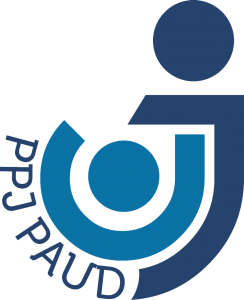Analisis Teori Daniel Goleman dalam Perkembangan Kecerdasan Emosi Anak Usia Dini
Analysis of Daniel Goleman's Theory in the Development of Emotional Intelligence in Early Childhood
DOI:
https://doi.org/10.37680/absorbent_mind.v4i1.5358Keywords:
Development, Early Childhood, Emotional IntelligenceAbstract
Early childhood is an important phase in a person's development. In this period, children are experiencing rapid growth and development, both physically, mentally, and emotionally. This period is also an important foundation in shaping a child's personality, skills, and mindset in the future. The aim of this research is to analyze the development of emotional intelligence in early childhood to collect data that will be used for various purposes from observing the development of emotional intelligence in early childhood according to gelomen theory. This research method is through a literature approach or literature study, which is a study used through searching for journal articles, books about emotional development in early childhood and according to experts' opinions regarding emotional development. The results of this research reveal that emotional intelligence includes the ability to recognize, understand, manage, and direct one's own and other people's emotions. There are four main components in emotional intelligence, namely self-awareness, self-management, social awareness, and relationship management. Emotional intelligence also includes a person's ability to regulate emotions, maintain and choose ways of expressing them through self-awareness, self-control, empathy, motivation, and social skills.
References
Aghnaita, Aghnaita, and Irmawati Irmawati. "Bahaya Perkembangan Sosial Emosional Anak Usia Dini." Pesona Pendidikan Anak Usia Dini, vol. 9, no. 1, 2022, pp. 1-11, doi:10.24036/112470.
Amrulloh, Amrulloh, and Ari Mulyoto. "Animasi Pembelajaran Interaktif untuk Anak 4-5 Tahun Berbasis Android." Jurnal Informatika Universitas Pamulang, vol. 1, no. 2, 2016, pp. 38-42,
Buku Pengembangan Emosi Anak Usia Dini , penulis : Dr.Khadijah, M.Ag., dan Nurul Zahriani JF, M.pd,perdana publishing, cetakan pertama,januari 2022.
Dr. Masganti Sit, M.Ag,,Psikologi Perkembangan anak usia dini, 2015 (Perdana Publishing, Medan )
Fauziah, Puji Y. "Mengembangkan Kecerdasan Emosi Anak Sejak Dini." Diklus, vol. 10, no. 5, Mar. 2005.
Herawati, Nenden I. "Menghadapi Anak Usia Dini Yang Temper Tantrum." Cakrawala Dini, vol. 3, no. 2, Nov. 2012.
Hm, Ely M. "Mengelola Kecerdasan Emosi." Tadrib, vol. 2, no. 2, 2016, pp. 198-213.
Indriawati, Dewi. "Hubungan Antara Status Gizi Dan Kecerdasan Emosi Terhadap Kesulitan Belajar Anak Usia Dini." Jurnal Pendidikan Usia Dini, vol. 7, no. 1, 1 Apr. 2013, pp. 133-154.
Jurnal pendidikan anak usia dini (masa keemasan)1 (2) januari 2022,kecerdasan emosional menurut goleman dalam persepektifkurikulum 201 PAUD.
Karisma, Winda T., et al. "Peran Orangtua dalam Menstimulasi Pengelolaan Emosi Anak Usia Dini." Paudia, vol. 9, no. 1, Jul. 2020, pp. 94-102.
Kecerdasa emosional , Daniel goleman , peneribit PT Gramedia pustaka ,jl. Palmerah barat, Jakarta hlm 25 oktober 1996.
Mulyati, Mumun. "Menciptakan Pembelajaran Menyenangkan dalam Menumbuhkan Peminatan Anak Usia Dini terhadap Pelajaran." Alim, vol. 1, no. 2, 2019, pp. 277-294, doi:10.51275/alim.v1i2.150.
Ningsih, Swandari P., et al. "Upaya Meningkatkan Perilaku Senyum Anak Usia Dini melalui Permainan di RA." Jurnal Pendidikan dan Konseling, vol. 4, no. 3, 2022, pp. 1202-1212.
Wahyuningsih, Yona. "Mengoptimalkan Sosioemosional Anak Usia Dini melalui Media Wayang." Eduhumaniora, vol. 6, no. 1, Jan. 2014, doi:10.17509/eh.v6i1.2856.
Yeni, Indra, et al. "Stimulasi Emosi Anak melalui Kegiatan Menyanyi Bagi Guru-guru Paud di Kecamatan Ampek Angkek dan Canduang Kabupaten Agam." Pesona Pendidikan Anak Usia Dini, vol. 5, no. 2, 2018
Downloads
Published
Issue
Section
License
Absorbent_mind; Journal of Psychology and Child Development allow the author(s) to hold the copyright without restrictions and allow the author(s) to retain publishing rights without restrictions, also the owner of the commercial rights to the article is the author.
License:
- Attribution: You must provide an appropriate name, include a link to the license, and certify that changes have been made. You can do this in an appropriate manner, but do not imply that the licensor supports you or your use.
- Share Alike: If you compose or make derivatives of these materials, you must distribute your contributions under the same license as the original materials.
- No additional restrictions: You may not use legal provisions or technological means of control that legally restrict others from doing the things this license allows.
You are free to:
- Share, copy, and redistribute this material in any form or format.
- Adapt, modify, and create derivatives of this material for any purpose, including commercial purposes.
- The licensor cannot revoke the above terms as long as you comply with the terms of this license.
Creative Commons Attribution-ShareAlike 4.0 International License (CC BY-SA 4.0).





